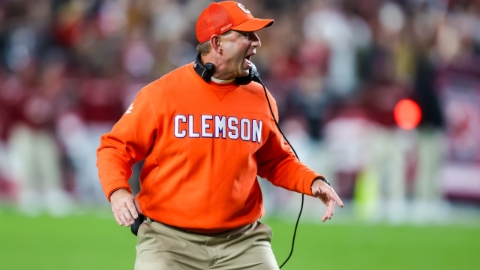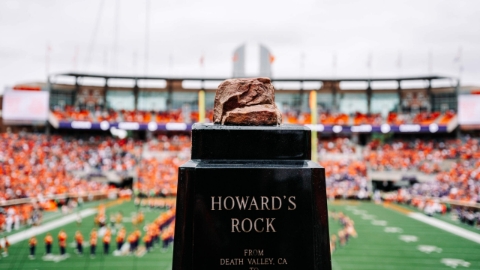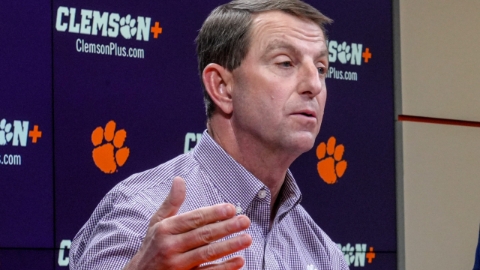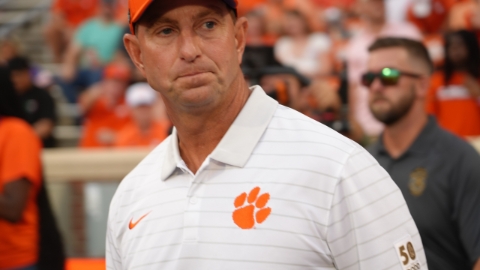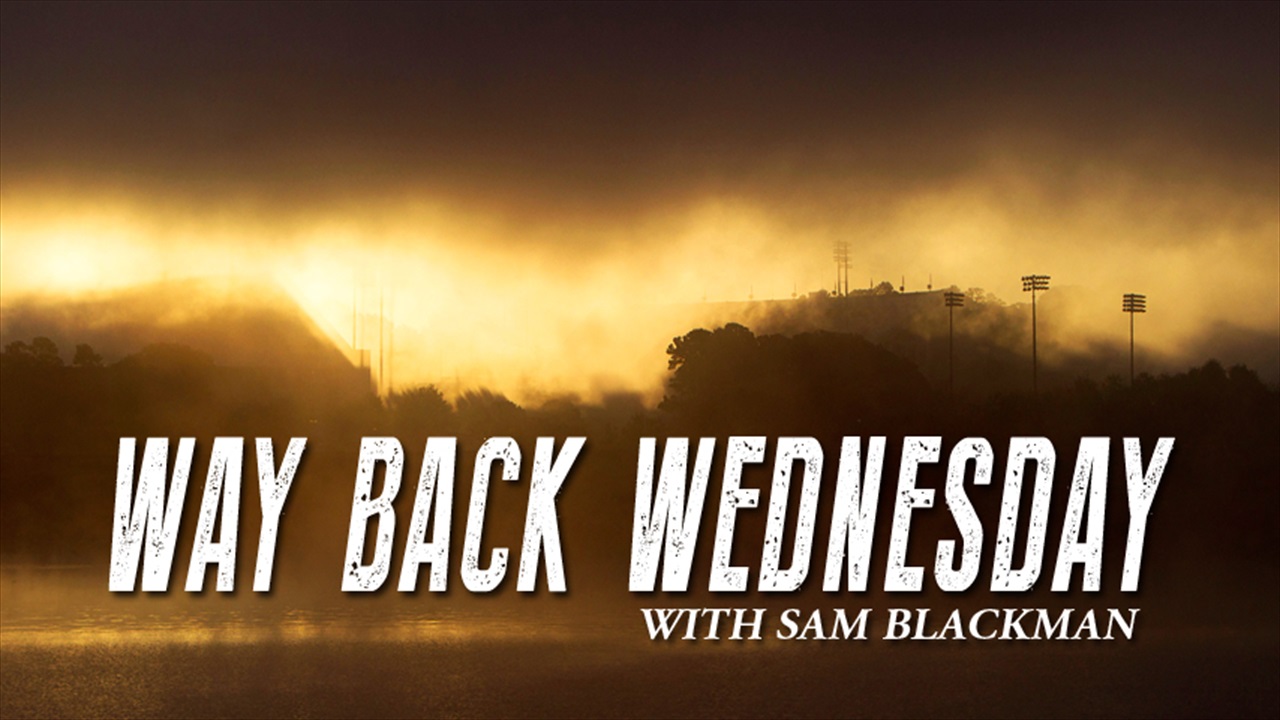
Each Wednesday, Sam Blackman joins us to talk a little Clemson football history. Here are a few of the topics we touched on this past week. You can listen to the full interview above.
On Clemson's Military History:
"When Clemson opened its doors in the 1800s, it was decided that Clemson was going to be a military school. It was going to be military type discipline, and it was fashioned after Mississippi State's system... as soon as you walked on Clemson's campus, you were automatically in ROTC. Once you graduated, you had to serve in the armed forces, whether it be army reserve or serve in the military. So it was decided in the early going that it was going to be a military school."

"Clemson does have a lot of brave folks that served, that have medal of honors awarded to them, and they've had a lot of people that have earned different medals, so Clemson does have a proud heritage."
On Memorial Stadium:
"Almost 500 former Clemson students have laid down their lives for the country. So, those need to be remembered and honored. The editor of the Tiger once wrote back in the '40s, 'We shall never forget.' And the stadium, of course, is named Memorial Stadium. It is named in honor of those Clemson students who have made the ultimate sacrifice."

"What's so unique about Clemson Memorial Stadium is that the Scroll of Honor is across from where the players make their famous entrance, running down the hill and touching Howard's Rock. The Scroll of Honor is a memorial to those brave men who have given their lives to our country and their names are etched in stone."
On Clemson's Service to War World I and II:
"It was the class of 1918. They sent a wire to President Wilson saying, 'We volunteer,' the entire class. It was such a sacrifice that they made, and a lot of them did end up going."
"Then in World War II, Clemson sent more officers to the United States Military than any other school except for West Point and Texas A&M. Of course you have to remember, Clemson had a small enrollment at that time, probably about 2,000 people. There weren't too many people left to carry on the school, but Clemson remained open."
"Coach Howard wanted to keep football going because he said it would be hard to start back from scratch. He said he really worked hard and would have little 17 and 18-year-old freshmen... he didn't have great results during those years, but he wanted to keep football going."
